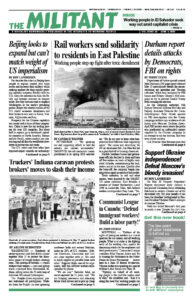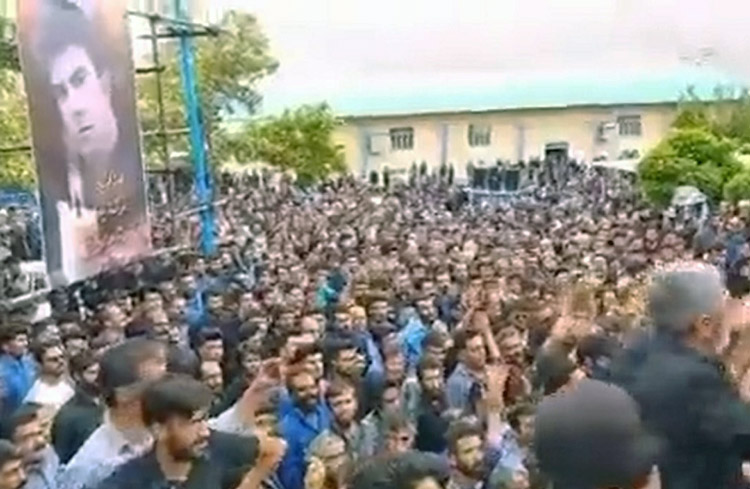The May 19 execution of three men active in “Women, Life, Freedom” protests in Isfahan has fueled demonstrations against the death penalty in Iran and around the world.
The government alleged that Saleh Mirhashemi, a karate champion and coach; Majid Kazemi, a welder; and Saeid Yaqoubi Yaqoubi, a real estate agent, had killed two members of the Basij militia and a police officer during a protest action Nov. 16.
Family members say the three were tortured into giving false confessions and were denied lawyers of their own choosing.
There has been a sizable increase in executions in Iran — already among the highest in the world — since the start of protests against the death of young Kurdish woman, Zhina Amini, after she was arrested by the “morality” police for not adhering to the regime’s reactionary dress code.
Most of those executed have been for alleged criminal, not political, activity, especially drug trafficking. They are disproportionately from oppressed nationalities, including Baluchs, Kurds and Arabs.
“These executions are a threat to all of us, the workers and the people, who cried out for freedom for women and protested against the murder of Mahsa Amini for violating the hijab law,” said the Council of Oil Contract Workers in a May 20 statement.
Thousands of contract oil workers are on strike, demanding a 79% wage increase to keep up with soaring inflation and more humane work schedules.
The rulers “carry out executions to impose wages that are several times below the poverty line, to push back the striking oil workers whose lives have been exhausted by discrimination, inequality and intimidation by contractors, and to silence the retirees who after years of work and hardship are still struggling with poverty,” the union said. “We demand the abolition of the death penalty and executions forever.”
Family members of those sentenced to death protested in the days leading up to their executions outside prisons in Isfahan, Karaj, just north of Tehran, and in Bandar Abbas. Students at the University of Tehran and elsewhere held protests. Despite an attack by the regime’s security forces, several hundred students at Beheshti University protested for over an hour.
The day before the executions thousands of Bakhtiaris, an oppressed nationality, in Junqan commemorated the life of Jamshid Mokhtari, who was killed by the regime a year ago during protests against a sharp rise in bread prices.
There were protests against the executions in over 40 cities around the world, from Australia to Germany, the U.S. and Canada May 20.


